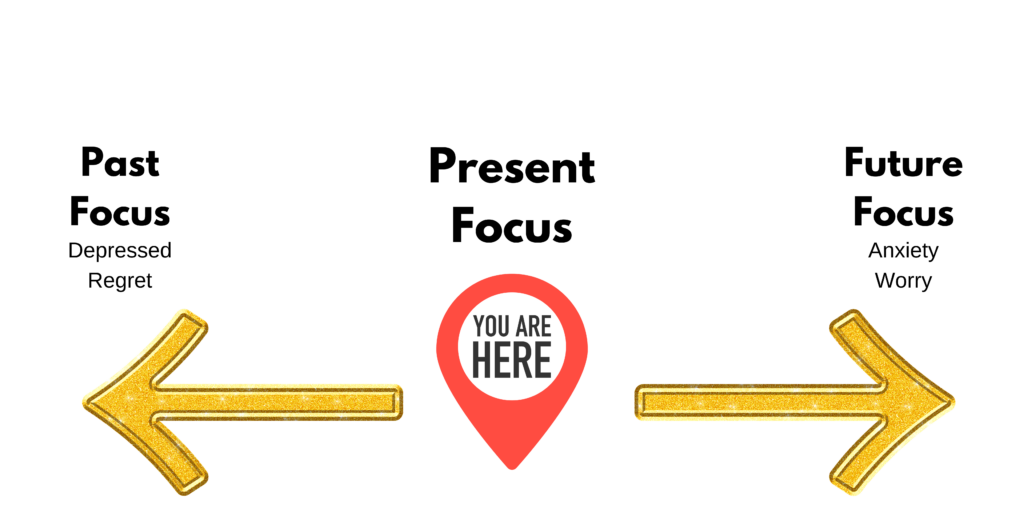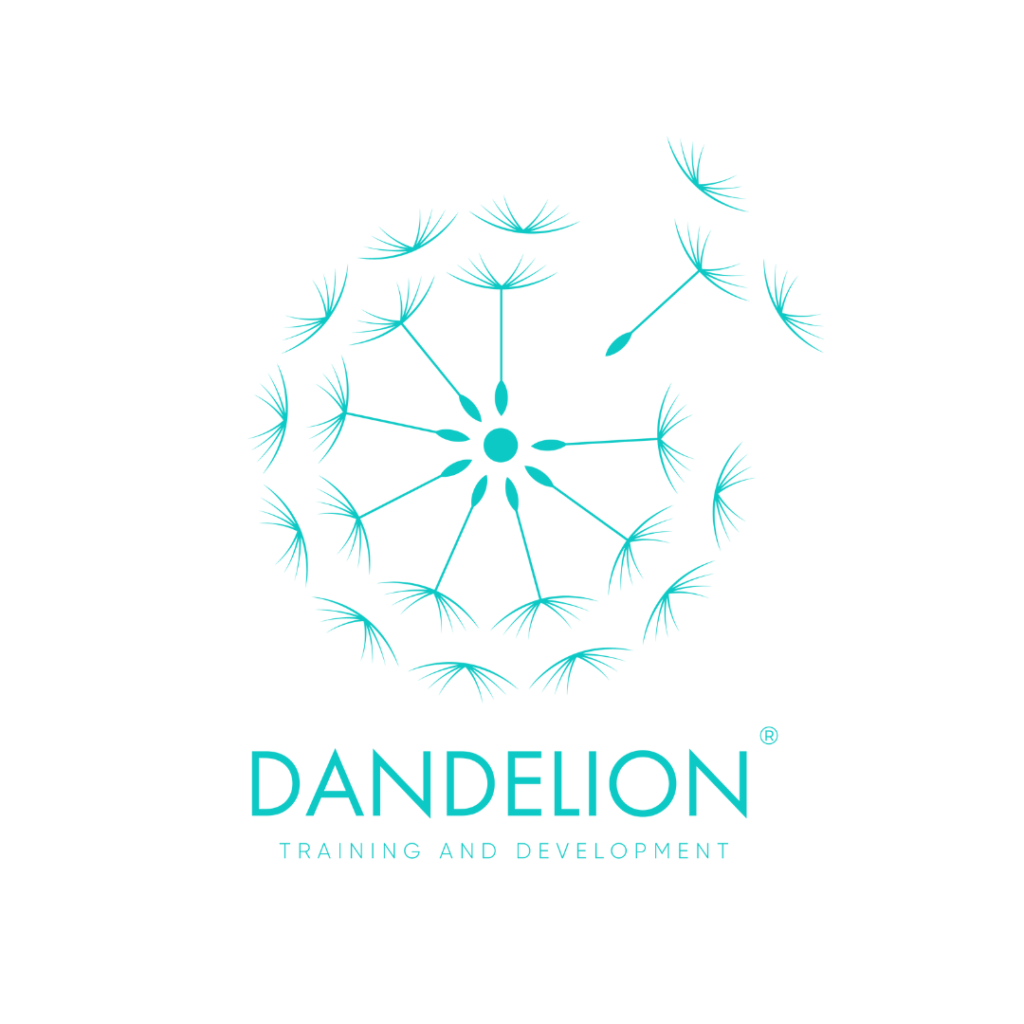Where is your head?
I often have conversations in my coaching and therapy work about where our perspective is and the impact that this has on our mental health and well-being.
Depending on where we focus, has a significant impact on our thoughts and feelings.
If we focus on the PAST, we can find ourselves focussed on regrets, ruminating, disappointed, remorseful or even resentful, often contributing to low mood or depressive symptoms.
If we focus on the FUTURE, we can find ourselves catastrophising, panicking, worrying, over controlling and experiencing symptoms of anxiety.
Whilst, if we focus on the PRESENT, we can remain more focused, calm, present, motivated and settled.

You may have heard the concept, that focussing on the future means that we go looking for potential problems and challenges. This can leave us trapped in a cycle of inaction, worried that if we make the ‘wrong’ decision that we will ruin our lives, so we stay frozen on the spot.
Whilst someone stuck in the past can become caught in either reminiscing and never living, or focused on all the things that went wrong, and therefore determined that more things will go wrong and lose time as they get stuck in the could of, would have beens.
So, how do we stay in the present?
- Be more grateful – looking at the things we are grateful for allows us to focus on the experiences that we have had with more positive intention. Practicing regular gratitude allows us to change our outlook and perspective.
- Look at what you gained – even from the challenges in life, we learn. This can initially feel hard, but take the time to consider what lessons, skills, behaviours or new approaches you have learned from the challenges. Taking time to write down what we gained from challenges experiences, allows us to refocus our attention.
- Focus on what you can control – we all have things we cannot control (other people, the country, the climate) but we also have things we can plan, such as our decisions, activities, mood, behaviours and actions. Look at which you focus on, and consider how you can be more intentional in your behaviours.
- Set goals – when we do not have intention and focus, it can be easy to slip into the habit of focusing on what we do not have, or the past. Taking time to set purposeful goals which stretch us and allow us to move forward allows us to focus on our present behaviours (whilst shaping our futures)
- Are you moving forward – when you plan your daily tasks, or make decisions about what you are doing, ask yourself if your action is purposeful? Is it taking you closer to where you need to be, even by one step?
Want to learn more?
If you want to learn more about mental health you can join our Level 4 training (here) or keep an eye out for our new specialist online courses coming soon (here).
© Dandelion Training and Development – All Rights Reserved
Further help

For more articles about mental health visit – ARTICLES
To learn more about child and adolescent mental health visit – COURSES
For resources to support child and adolescent mental health visit –RESOURCES
